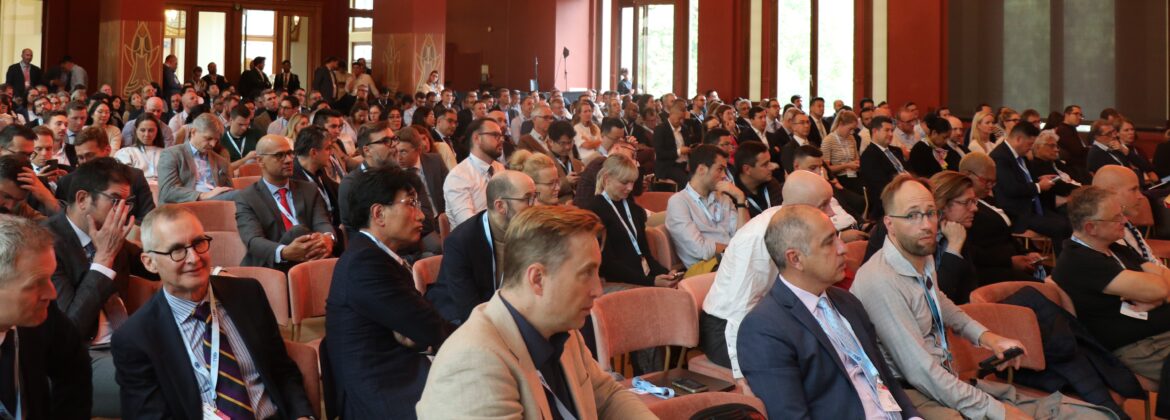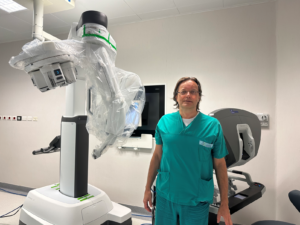The ESGURS-ESAU25 meeting (2-3 October 2025, Turin, Italy) will bring together leading specialists in reconstructive surgery and andrology, serving as a forum where the future of andrology and reconstructive urology will be presented, debated, defined, and advanced.
Key topics such as fertility preservation, testosterone therapy, and sexual rehabilitation after cancer will be addressed as integral components of male health. When asked about the most significant developments on the horizon, ESAU Chair Prof. David Ralph (GB) shared his vision of what’s to come:
Prof. Ralph: “The future is robotic reconstruction for benign diseases. This will include the bladder, ureter and bladder neck sphincters electively, together with some emergency pelvic work. From the penis perspective, we look forward to electronic sphincters and penile implants, as well as potential regenerative medicine for urethral stricture repair. These themes will be covered in the ESGURS-ESAU25 scientific programme over the two days.”
Preview of andrology sessions at EGURS-ESAU25
Thursday, 2 October
Dr. Pippa Sangster (GB) and Prof. Nikolaos Sofikitis (GR) will lead a plenary session on male infertility, highlighting what every urologist should know about genetic diagnostics before performing surgery to improve sperm quality. This includes the significance of genetic testing and counselling in identifying and treating male infertility. Varicocele management, embryology’s role in improving ICSI outcomes, and sperm selection tools such as IMSI, ICSI, and PICSI will also be critically examined. Are they worth it?
A plenary session on male hormones will be chaired by Dr. Giovanni Corona (IT) and Prof. Andrea Salonia (IT). Presentations will highlight the impact of varicocele on testicular endocrine function, management strategies for non-obstructive azoospermia (NOA), and the effects of interventions on broader male health outcomes in infertility patients.
Friday, 3 October
The second day begins with a session on male incontinence chaired by Dr. Andrea Cocci (IT) and Prof. Koenraad Van Renterghem (BE). Presentations will cover the latest in slings, artificial urinary sphincters (AUS), and electronic urinary devices – balancing the fact and fiction while considering functional outcomes.
The Plenary Session ‘Updates on Andrology 2025’, chaired by Prof. Omidreza Sedigh (IT) and Prof. Ege Can Şerefoğlu (TR) will provide a comprehensive overview of the new EAU Sexual and Reproductive Health Guidelines, examine the role of regenerative medicine for erectile dysfunction, and present novel findings on penile prosthesis outcomes in men affected by premature ejaculation.
Prof. Carlo Bettocchi (IT) and Prof. David Ralph (GB) will chair a session on penile size abnormalities and dysmorphophobia. This series of lectures will examine guideline-based approaches, topical infiltration therapies, and the increasingly relevant debate over whether patient concerns represent genuine dysmorphophobia or are they aesthetic requests?
The day also includes a dedicated 1-hour ‘andrology abstract session’, featuring studies on: Barry shunt use in prolonged ischemic priapism (a novel treatment algorithm), evaluation of bulbocavernosus muscle structure using transperineal ultrasonography in patients with premature ejaculation; and a review of an existing rare disease registry for Klinefelter’s Syndrome. The role of artificial intelligence to enhance disease registries will also be explored, underscoring the field’s embrace of data-driven progress to improve patient care.
Beyond technical outcomes
At ESGURS-ESAU25, discussions on the measure of success will extend well beyond technical mastery. The meeting will emphasise patient experience, well-being, and multidimensional outcomes as vital components of care. This integrated perspective signals a shift in how future guidelines will be shaped – anchored not just in surgical results, but in quality of life, satisfaction, and long-term health.
Attend ESGURS-ESAU to learn more. You can see the full scientific programme and register here.





